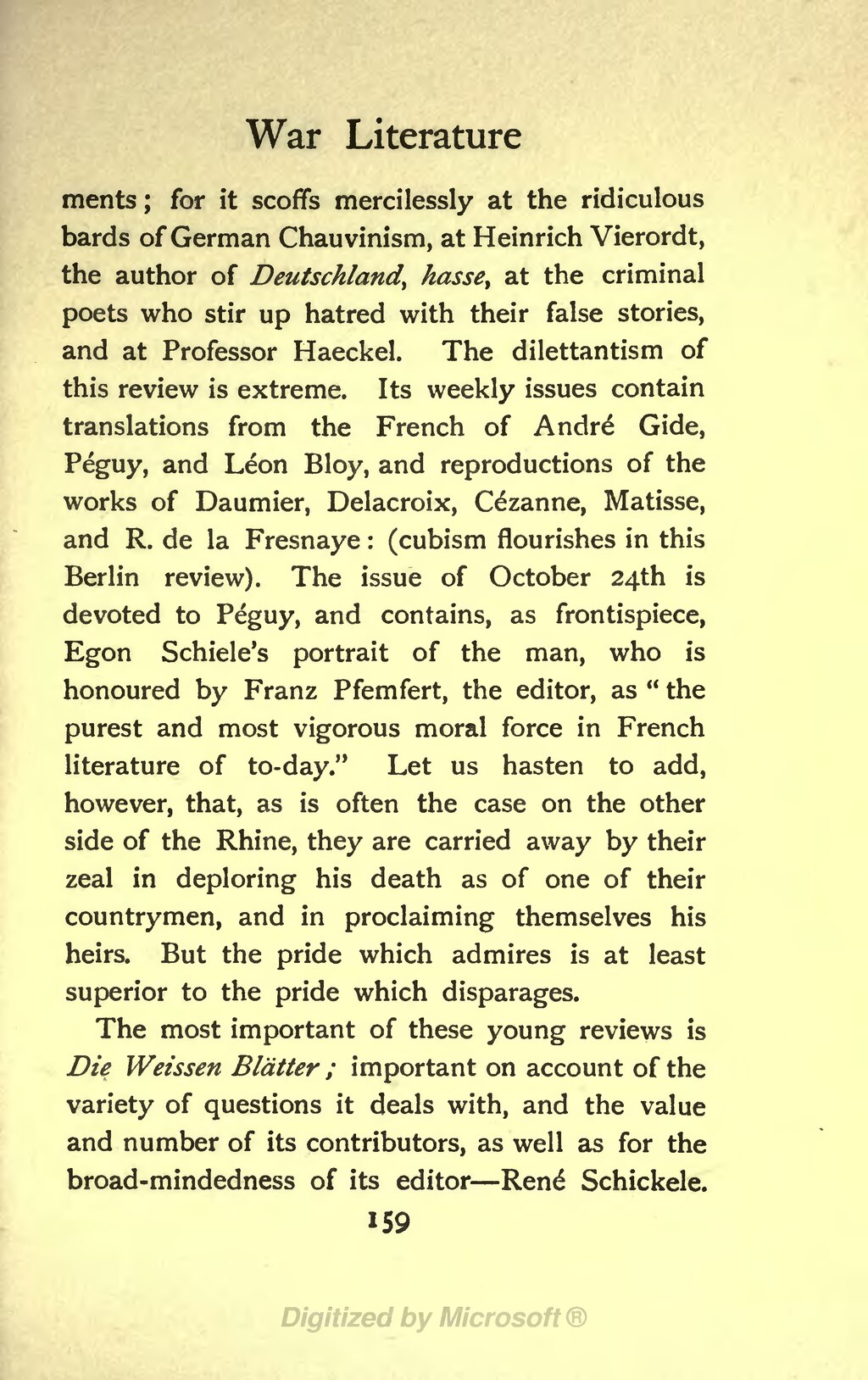War Literature
ments; for it scoffs mercilessly at the ridiculous bards of German Chauvinism, at Heinrich Vierordt, the author of Deutschland, hasse, at the criminal poets who stir up hatred with their false stories, and at Professor Haeckel. The dilettantism of this review is extreme. Its weekly issues contain translations from the French of André Gide, Péguy, and Léon Bloy, and reproductions of the works of Daumier, Delacroix, Cézanne, Matisse, and R. de la Fresnaye: (cubism flourishes in this Berlin review). The issue of October 24th is devoted to Péguy, and contains, as frontispiece, Egon Schiele's portrait of the man, who is honoured by Franz Pfemfert, the editor, as "the purest and most vigorous moral force in French literature of to-day." Let us hasten to add, however, that, as is often the case on the other side of the Rhine, they are carried away by their zeal in deploring his death as of one of their countrymen, and in proclaiming themselves his heirs. But the pride which admires is at least superior to the pride which disparages.
The most important of these young reviews is Die Weissen Blätter; important on account of the variety of questions it deals with, and the value and number of its contributors, as well as for the broad-mindedness of its editor—René Schickele.
159
